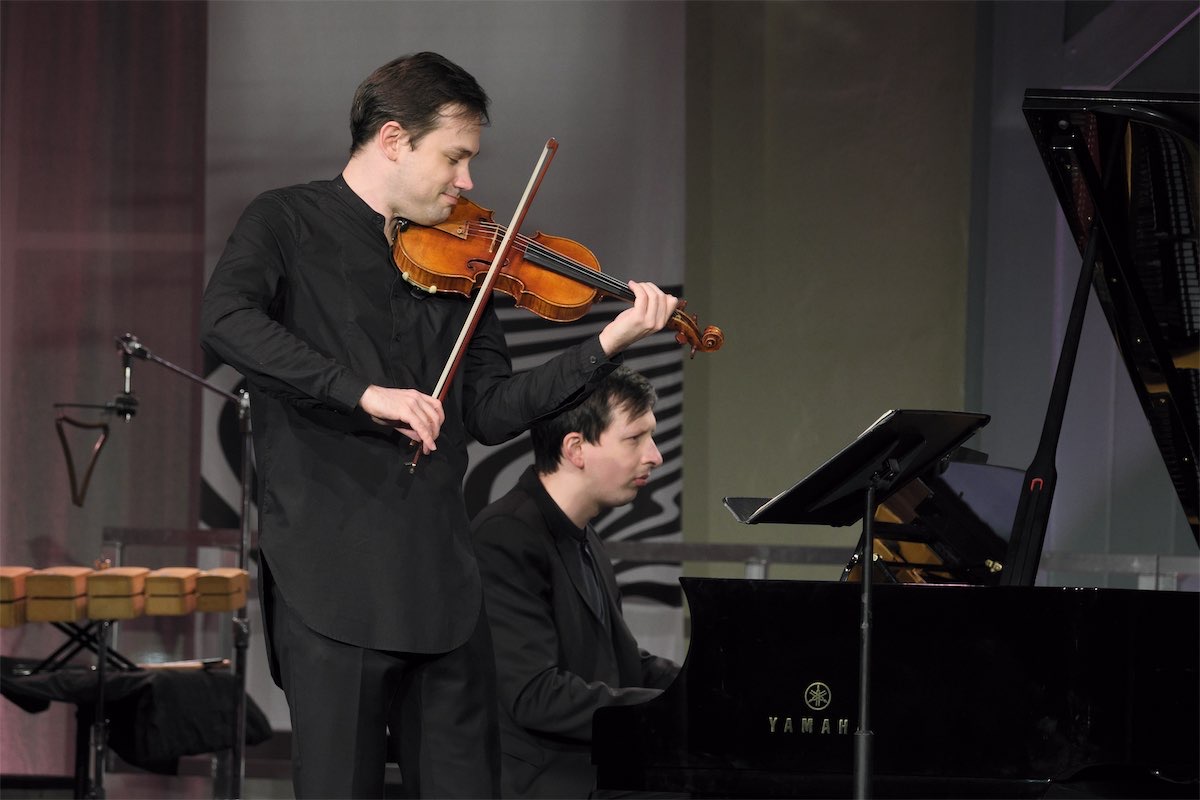
CIMF, Concert 16 / “An English Lark”, Fitters’ Workshop, May 6. Reviewed by ROB KENNEDY.
FROM England’s green pastures, the music of the mid-20th century British composers brought the sounds of their countryside out across the world, and they have never stopped fascinating.
The artists for this Canberra International Music Festival concert, “An English Lark”, were, Andrew Goodwin, tenor; Lukas Krupinski, piano; Kristian Winther, violin; Jason Noble, clarinet; Sally Walker, flute; Flora Carbo, saxophone; Ruben Palma, cello; Naoto Segawa, percussion; the NZ String Quartet and Jonathan Biggins performing the poetry of Dame Edith Sitwell.
“The Lark Ascending”, by Ralph Vaughan Williams opened the concert. With just Winther on violin and Krupinski on piano, it was a novel experience. The string orchestra, which is usually heard accompanying the solo violin, has a different sensibility. With just piano and violin, it’s a much more intimate, chamber music-like experience.
Winther’s handling of this moving music created subtleties and nuances seldom heard in a music hall. With the piano’s ability to drop quickly in volume, this gave Winther’s violin the space for greater expression.
Krupinski seemed to sense the importance of the violin imitating the lark and the delicacies required, as he kept the piano a dynamic under the violin. Even without all the strings, this was still a soaring and sensuous performance.
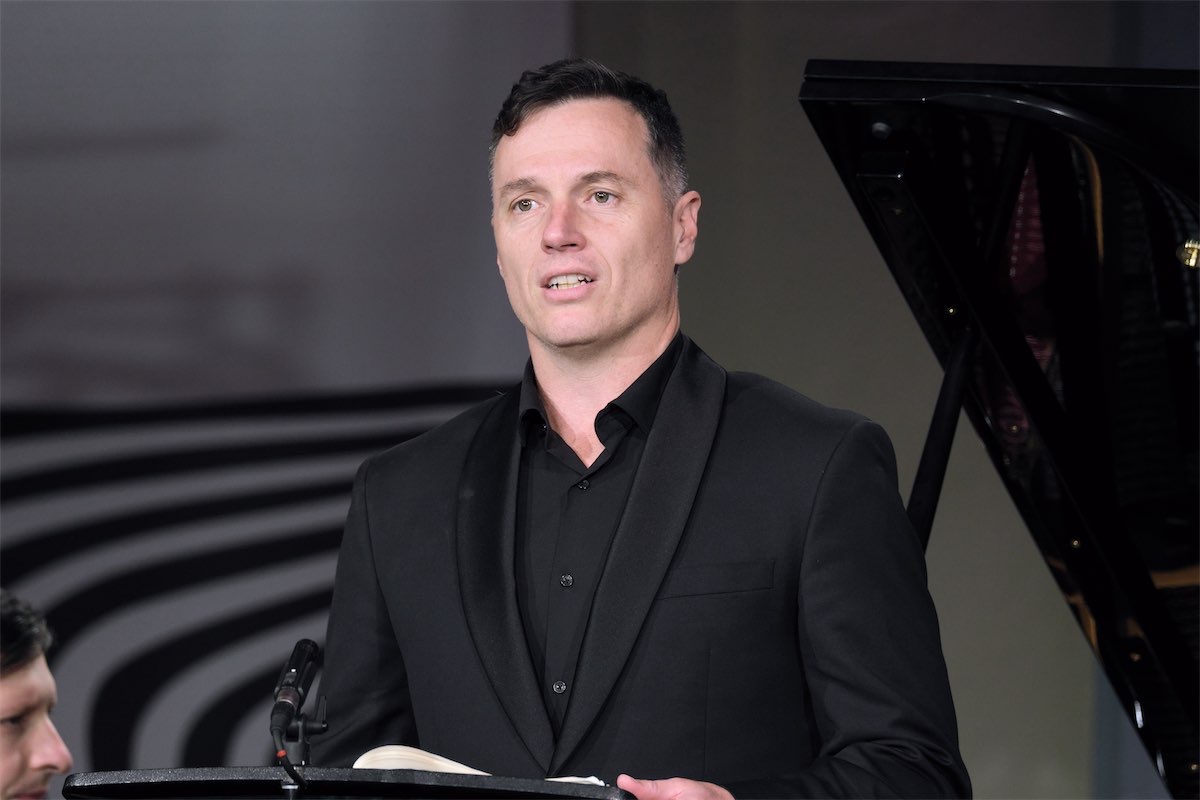
Composed in 1909, the song cycle, “On Wenlock Edge”, by Vaughan-Williams, performed by the tenor Andrew Goodwin along with Krupinski on piano and the NZ String Quartet is a setting of six poems from AE Housman’s 1896 collection “A Shropshire Lad”.
These dramatic songs were made even more dramatic because of the fiery and dynamic NZ String Quartet. They were immediately exciting and vigorous. Their music-making holds much depth and artistic flair. Goodwin felt the songs strongly and responded with a passionate performance. His control and expression were exactly right for these earthy songs.
After the interval, more musical poems followed through the collaboration of the eccentric English poet Edith Sitwell and William Walton in his “Façade”.
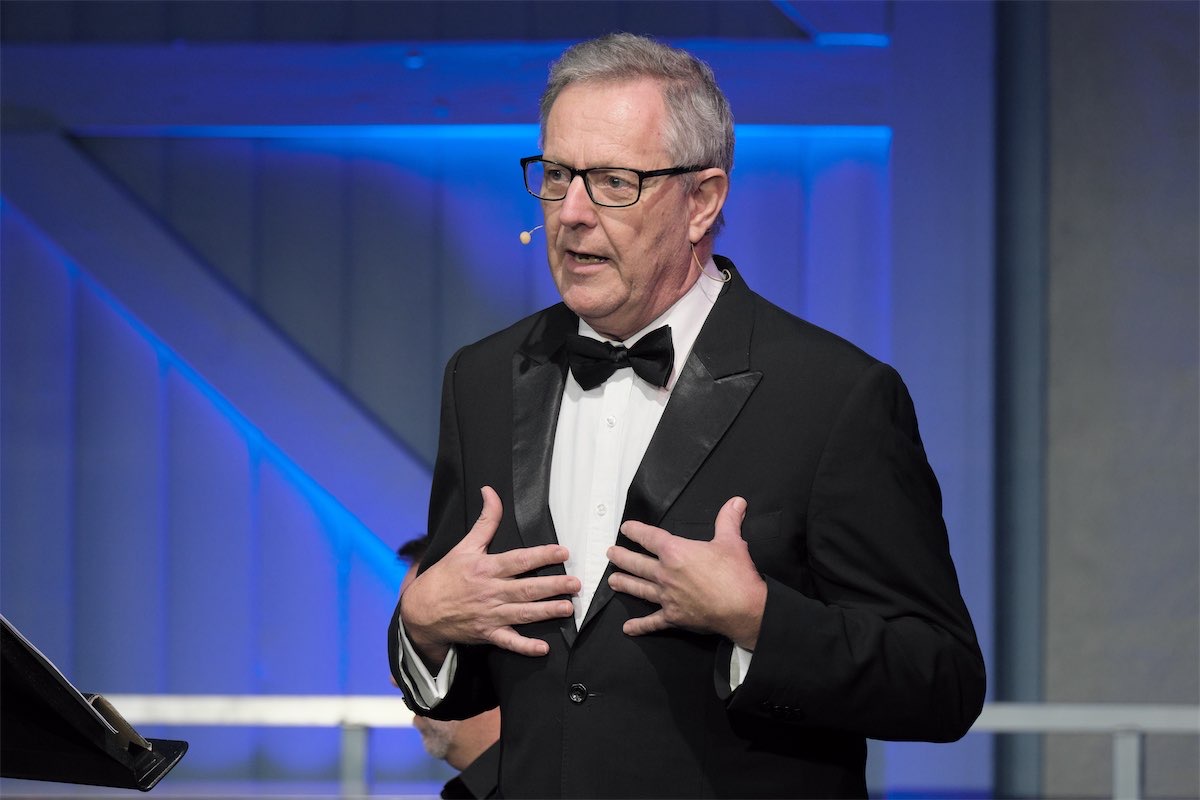
If ever there was poetry that should be set to music, it is the wild lyrical words of Edith Sitwell. Many were inspired by and talked about the magic of music.
Sitting down to conduct these eccentric sounds, Roland Peelman gave an animated performance. But not half as animated as Jonathan Biggins was presenting this amazing collaboration.
Biggins played up his part with theatrical ham and devilish wit. The lyrics seemed to trip over themselves, but it was no problem for Biggins to manage this cavalcade of crazy words wrapped in even crazier stories.
The music, like a comedy carnival mixed with a strong dash of slapstick, blew along to perfectly accompany these inventive tales that were about almost everything. Each piece had a distinctive character, but they were all part tongue in cheek, part hilarious slapstick combined with mysterious subjects that were impossible to figure out. Was it serious or a complete farce? Who knows? But it was a bit like Monty Python meets Gilbert and Sullivan.
This was a concert of sublime beauty and sublime silliness. The audience couldn’t stop laughing at the final work.
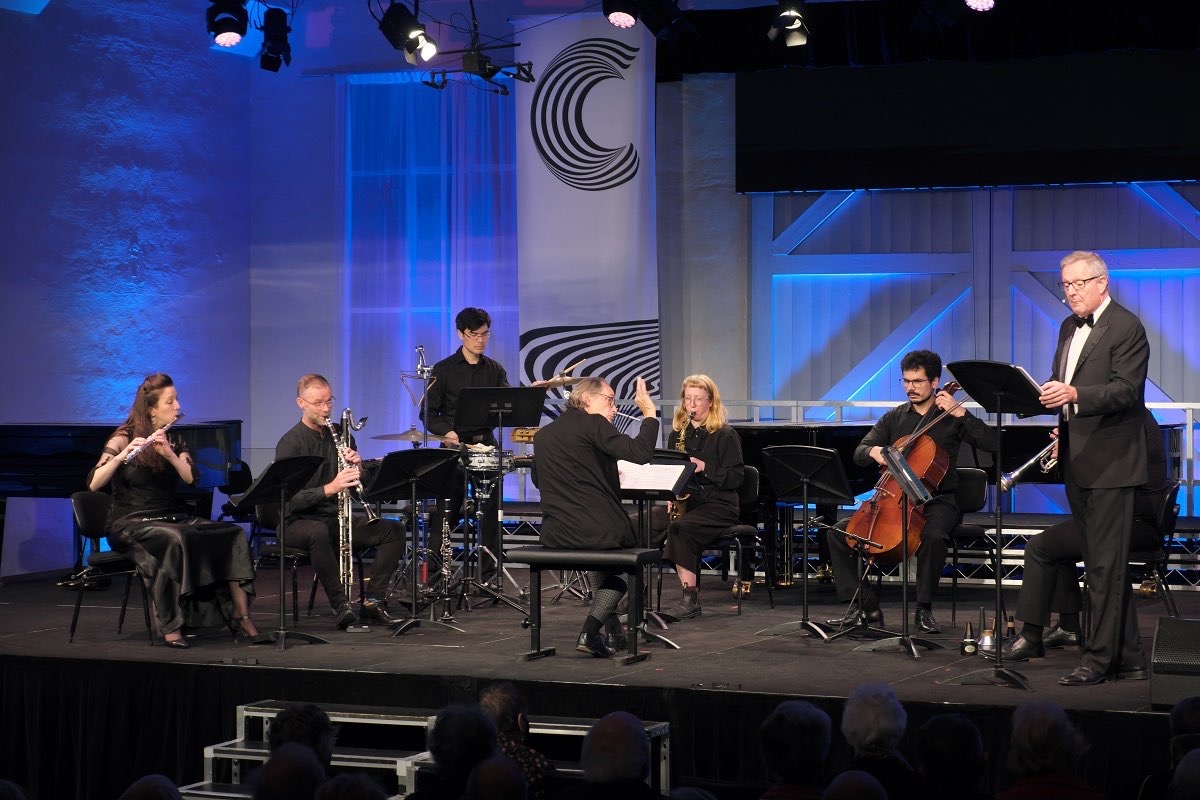
Who can be trusted?
In a world of spin and confusion, there’s never been a more important time to support independent journalism in Canberra.
If you trust our work online and want to enforce the power of independent voices, I invite you to make a small contribution.
Every dollar of support is invested back into our journalism to help keep citynews.com.au strong and free.
Thank you,
Ian Meikle, editor
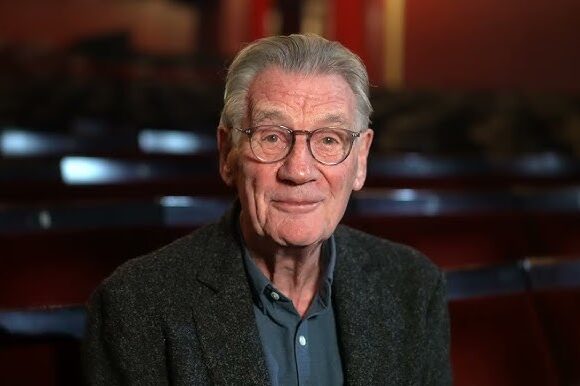
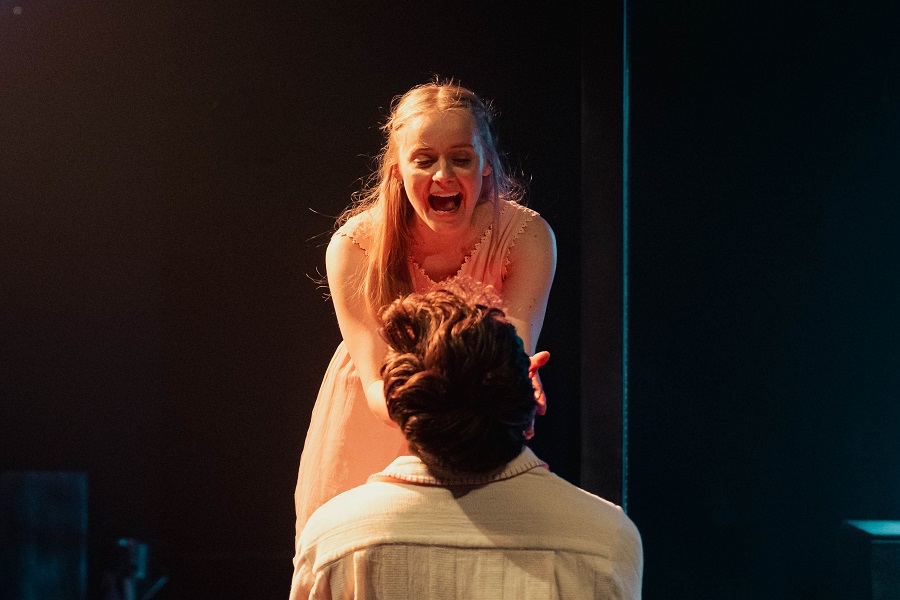
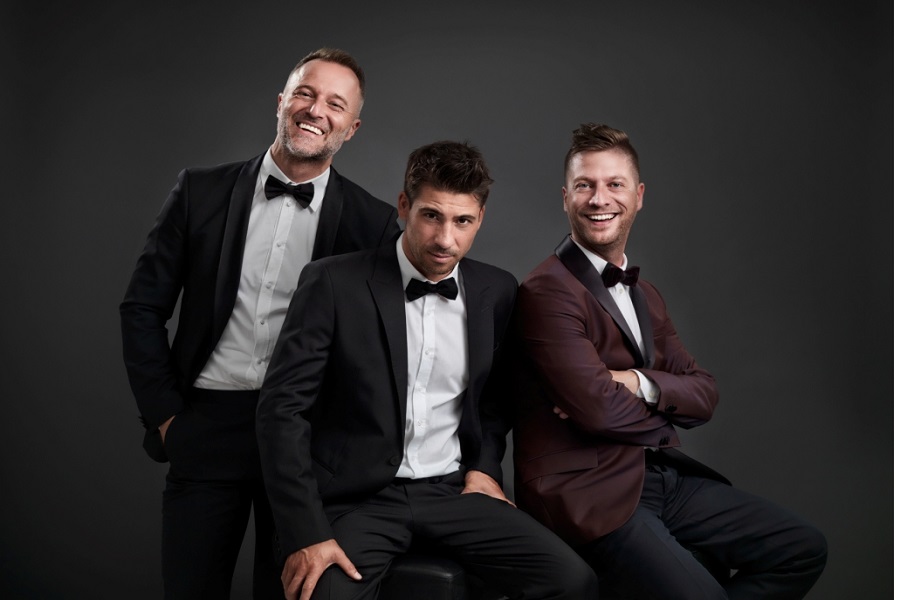
![Evie Hudson is a woman with amnesia, who forgets the last 13 years. Piecing her life back together, she navigates the harsh realities of coercive control.
Evie is the leading character in local author @emmagreyauthor's second novel Pictures of You.
Her debut book, The Last Love Note, sold more than 100,000 books worldwide within a few months of being published last year.
“I think that using amnesia really helped [show the effects of coercive control] because she had that sense of being completely lost in her own life,” Emma says of her new work of fiction.
To read the full story and find out more about this fabulous local author and her latest novel, visit our website at citynews.com.au or click the link in our bio! 📚✒️
#canberra #local #canberralocals #canberralife #australia #author #localauthor #Picturesofyou #coercivecontrolisabuse #dvawareness #bestsellingauthor #canberraauthor #localnews #citynews](https://citynews.com.au/wp-content/plugins/instagram-feed/img/placeholder.png)
Leave a Reply